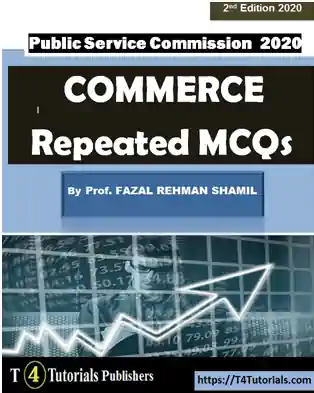Solved MCQs on Transformational Leadership.
Leaders demonstrate which of the following when they use language to affect followers’ perceptions of the world, the meaning of events, beliefs about causes and consequences, and visions of the future.
(A). Framing
(B). Influence
(C). Mentoring
(D). Vision
(E). None of these
MCQ Answer: (A).
Which is NOT true of charismatic leaders?
(A). Charismatic leaders have a vision.
(B). Charismatic leaders are focused on their personal needs.
(C). Charismatic leaders are willing to take high personal risk.
(D). Charismatic leaders have behavior that is unconventional.
(E). None of these
MCQ Answer: (B).
A charismatic leader’s ___ is the key to follower acceptance.
(A). Energy
(B). History with the organization
(C). Credentials
(D). Vision
(E). None of these
MCQ Answer: (D).
Overall evidence shows that transformational leadership is more powerfully associated as compared to transactional leadership with which of the following?
(A). Lower turnover rates
(B). Higher productivity
(C). Higher employee satisfaction
(D). All of these
(E). None of these
MCQ Answer: (D).
Which kind of leaders know who they are, believe in and value and act on those values and beliefs openly and honestly.
(A). Authentic
(B). Transactional
(C). Charismatic
(D). Transformational
(E). None of these
MCQ Answer: (A).
Which is NOT a dimension of trust?
(A). Distance
(B). Competence
(C). Loyalty
(D). Integrity
(E). None of these
MCQ Answer: (A).
Which of the following is a senior employee who supports and sponsors a less- practiced employee.
(A). Leader
(B). Facilitator
(C). Mentor
(D). Coach
(E). None of these
MCQ Answer: (C).
The mentoring role in leadership includes counseling but not coaching, and sponsorship.
(A). True
(B). False
MCQ Answer: (B).
Which is NOT a substitute for leadership?
(A). Explicit formalized goals
(B). Professional orientation of employees
(C). Cohesive workgroups
(D). Rigid rules and procedures
(E). None of these
MCQ Answer: (B).
Authentic leaders are honest and true to their followers and to themselves, and this is the characteristic of all those leaders who consider themselves within their social environment and spent their lives according to their standards, values, and ethics.
(A). True
(B). False
MCQ Answer: (A).
Which leadership style focuses on inspiring and motivating team members towards a shared vision?
A) Autocratic
B) Democratic
C) Transactional
D) Transformational
Answer: D) Transformational
In transformational leadership, what is the leader’s role in fostering innovation and creativity?
A) Restricting new ideas
B) Encouraging risk-taking and creativity
C) Discouraging change
D) Imposing rigid structures
Answer: B) Encouraging risk-taking and creativity
What is a key characteristic of transformational leaders in terms of communication?
A) Minimal communication
B) One-way communication
C) Open and transparent communication
D) Authoritarian communication
Answer: C) Open and transparent communication
How do transformational leaders influence their followers?
A) Through fear and punishment
B) By setting strict rules
C) Through rewards and punishments
D) By inspiring and motivating
Answer: D) By inspiring and motivating
In transformational leadership, what does the leader emphasize regarding the organization’s future?
A) Maintaining the status quo
B) Short-term gains
C) Creating a vision for the future
D) Avoiding future planning
Answer: C) Creating a vision for the future
What role does emotional intelligence play in transformational leadership?
A) Negligible role
B) Limited role
C) Essential role
D) Detrimental role
Answer: C) Essential role
Which leadership style encourages continuous learning and development among team members?
A) Autocratic
B) Transactional
C) Transformational
D) Laissez-faire
Answer: C) Transformational
How do transformational leaders handle challenges and obstacles?
A) Avoiding challenges
B) Ignoring obstacles
C) Overcoming challenges with resilience
D) Blaming the team
Answer: C) Overcoming challenges with resilience
What is the impact of transformational leadership on organizational culture?
A) Fosters a culture of fear
B) Maintains a stagnant culture
C) Cultivates an innovative and positive culture
D) Promotes a hierarchical culture
Answer: C) Cultivates an innovative and positive culture
In transformational leadership, what is the focus in terms of individual development?
A) Restricting personal growth
B) Promoting individual goals
C) Ignoring personal development
D) Fostering individual growth and development
Answer: D) Fostering individual growth and development
More MCQs on Leadership
- Leadership MCQs
- Leadership and Followership MCQs
- Leadership and Management in organizations MCQs
- Theory Of Team leadership MCQs
- Transformational Leadership MCQs
- Communication skills MCQs
- Verbal, Non-verbal Communication MCQs
- Leadership Styles MCQs
- Leadership Traits and Skills MCQs
- Leadership in Teams MCQs
- Strategic Leadership MCQs
- Ethical Leadership MCQs
- Leading Change MCQs
- Leadership in Diversity and Inclusion MCQs
- Global Leadership MCQs
- Leadership and Emotional Intelligence MCQs
- Leadership Case Studies MCQs
- Leadership Development MCQs
- Leadership Interview Questions Answers
- Women in leadership MCQs
